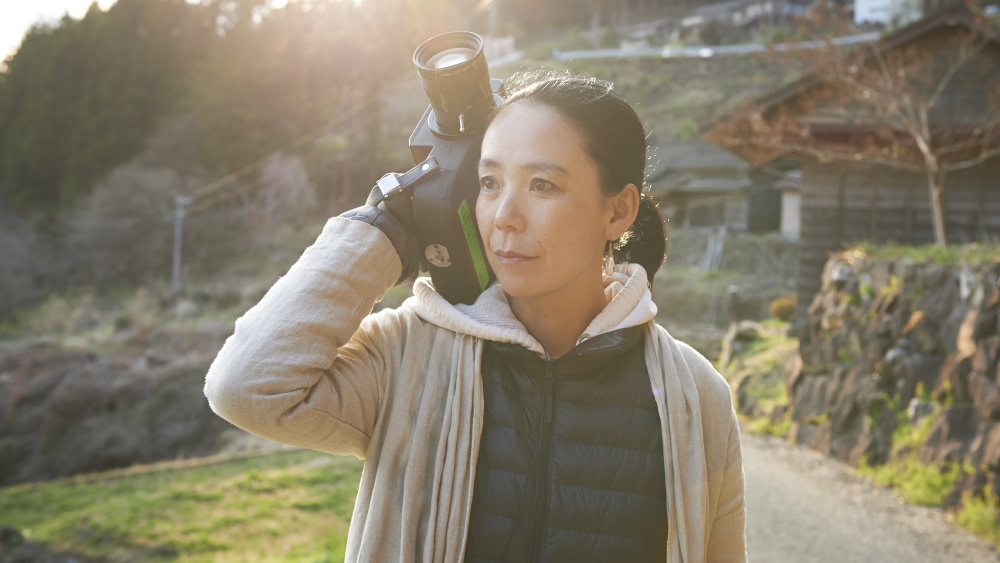About the lists: Calls to socially distance and self-isolate are driving people to look for things to watch. But the sheer amount of options out there can be overwhelming. For this reason, we at the Centre for Screen Cultures are producing themed playlists of film, video, and television so you can organise your own series or festival at home (or home school). They will update here and here: https://screenculture.wp.st-andrews.ac.uk/category/media-playlists/
***
From Dina Iordanova:
Recently I taught a class on Japanese documentary, for which I resourced many links for publicly available resources of rare Japanese documentary films.
Besides presenting the work of ‘usual suspects’ such as Shinsuke Ogawa or Kazuo Hara, I was determined to include the work of at least one female documentary filmmaker in view to somehow balance out the line of brave male directors that was formidable yet lacking in any diversity.
My choice fell on Nara-native Naomi Kawase (b. in Nara, Japan, in 1969), who still resides in the area where she was raised by her adoptive parents. She has come to amateur 8mm filmaking in the early 1990s but by now she has made a number of features as well — such as the acclaimed Suzaku (1997), The Mourning Forest (2007), and Radiance (2017).
Kawase is still better known in France, as a darling of the Cannes festival that has acknowledged and awarded her work from the onset. But I understand she is also highly respected in Japan, for speaking up for independent women, divorcees specifically.
All Kawase’s feature films are marked by documentary quality and elements (especially in her preference to portray ordinary people from the area, shown in close ups and looking to the camera, with no commentary), and we are lucky to that YouTube offers links some of her work– and what I see as key documentaries.
The first one is the very personal and utterly moving 8 mm fim Embracing (1992 , English subtitles) which tells about her difficult family story and about overcoming trauma.
Its sequel, the flickering 8mm Katasumori (1994, English Subtitles) is a moving portrayal of the ‘grandmother’ who raised Kawase after she was abandoned by her parents at an early age.
Ten, Mitake/Sea Heaven (1995, English Subtitles) is a 10-min long humanist documentary, which features the same grandmother going on around her daily chores. In 2006 Kawase revisited this grandmother one more time, now in advanced dementia, for Tarachime/ Birth Mother (2006, English, French, and Spanish Subtitles).
In the mid 1990s, after making these films, Kawase was, for a while, involved in a video correspondence with Hirokazu Koreda, who was, like her, a member of the new generation of yoing Japanese independent directors. The enchanting result of this exchange is This World (Winter) (1996). [Not streaming]
YouTube also provides access to two further resources related to two of Kawase’s public discussions on the importance of film.
The Value of Movies, a TEDTalk in Tokyo 2019 is a very personal and profoundly moving talk on how film helps overcome trauma.
There is also Kawase’s great discussion of documentary filmmaking filmed during a stage interview at IDFA in 2018, as part of the sidebar dedicated to her work. The interview is edited with excerpts of her work and thus gives a good overview of the director’s oeuvre. It is available at https://www.youtube.com/watch?v=k-YVazrF79M
These days, Kawase is running a film festival in her city of Nara, the next edition of which is scheduled for October 2020. She is also the filmmaker appointed by the Japanese government, in the footsteps of Kom Ichikawa’s Tokyo Olympics 1964 to make a documentary about Tokyo 2020. Let’s see what will come out of these projects.

Naomi Kawase contributed to our book CINEMAS OF PARIS a few years ago. I strongly hope to meet her in person later this year, as the Nara film festival that she created and runs on bi-annual basis is likely to be taking place — that is, assuming the pandemics is over by then:)